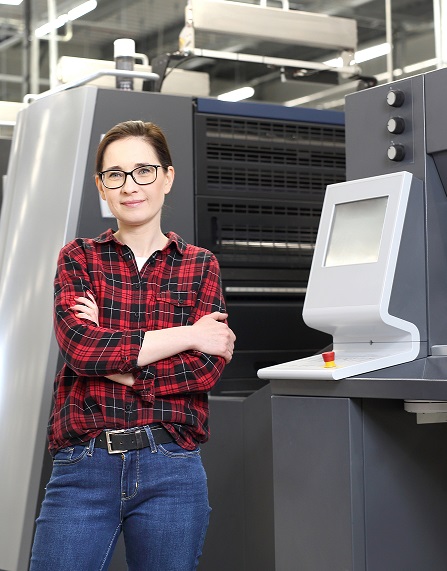The final installment of our three-part labor series focuses on employing automation as a competitive advantage.
In the first part of this series, we analyzed the aging, skilled labor market—the trend of older employees leaving the workforce and strategies for recruiting youthful as well as more mature workers. Next, we delved into how to hold on to staffers already on the payroll. In Part 3 of three, we analyze automation advancements as part of the solution to printing industry staffing shortages.
With the overall cost of doing business increasing and production volumes decreasing, how can print service providers (PSPs) maintain profit margins and still make money? The ability to print more jobs at faster rates becomes paramount. Automated technologies allow employees to perform critical pre-press, printing, and post-press operations without requiring years of experience as apprentices or junior assistants. For example, achieving precise colors on the press has become a case of science trumping subjectivity, according to Shawn Sundquist, president and CEO of Range Printing, Inc. (Brainerd, MN).
“In some respects, the skilled-labor shortage has forced the issue,” says Sundquist, a third-generation leader at the company his grandfather founded 55 years ago. “There is definitely an older demographic in our pressroom running the presses,” he notes, lamenting that the vast majority of younger workers don’t seem to care much about the intricacies of mechanical inner-workings.
“Young people are used to pressing the ‘easy button,’” Sundquist observes.



